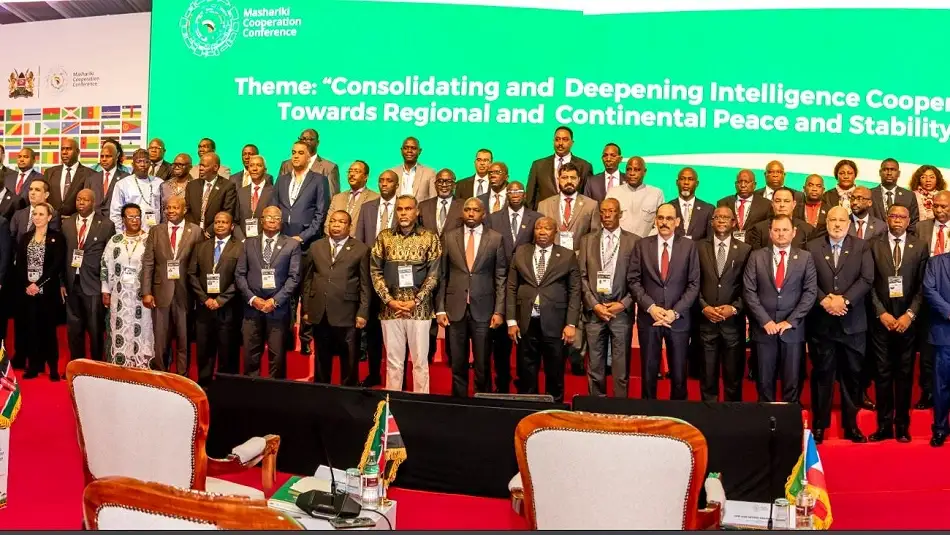The Mashariki Cooperation Conference 2025 (MCC 2025), held on April 5 in Naivasha, Kenya, brought together over 60 intelligence and security organizations, has concluded. The meeting, attended by the head of Turkish National Intelligence Organization (MIT), İbrahim Kalın, was considered a significant turning point in regional African intelligence cooperation.
The Mashariki Cooperation Conference (MCC) was initiated to create a continental platform for intelligence professionals to collaborate on key security concerns. Focusing on intelligence sharing, capacity building, and joint operations, the MCC has become a cornerstone of Africa’s regional security strategy.
The conference, which gathered more than 60 intelligence and security agencies from across the continent and beyond, provided a solid platform to advance African intelligence cooperation, address modern security threats, and promote strategic regional alliances.
The event was organized under the title of: “Strengthening and Deepening Our Intelligence Cooperation Towards Regional and Continental Peace and Stability.” This title, reflects the urgency of reinforcing cooperation mechanisms and building lasting peace through unified intelligence efforts. Sessions and side meetings focused on viable strategies for long-term stability in Africa.
The goals of MCC 2025 included:
Strengthening the intelligence sharing frameworks
Promoting the joint counter-terrorism strategies
Enhancing cybersecurity readiness
Combating misinformation and disinformation
Integrating artificial intelligence into the intelligence workflows
Speaking after the Kenyan President and the Director of Intelligence of Kenya at the meeting, İbrahim Kalın provided information on Türkiye’s experiences in cyber intelligence and counter-terrorism, encouraging the establishment of deeper partnerships between Africa and international organizations. Türkiye, which delivered 6 Bayraktar TB2 unmanned aerial vehicles (UAVs) to the Kenyan National Intelligence Service (NIS) in December last year, has a special significance for Kenya.
Outcomes and Solutions
Although no official agreement was announced, several informal decisions and strategic commitments were made during the conference:
Agreement to expand real-time intelligence sharing channels
Commitment to establish joint task forces for counter-terrorism
Development of artificial intelligence and cybersecurity training programs
Planning to institutionalize the conference as an annual event
Exploring the possibility of establishing a permanent working group or secretariat
These outcomes signal a shift toward a more integrated, resilient, adaptive, and technologically capable African intelligence community.
Source: https://www.ujasusi.com/p/mashariki-cooperation-conference


